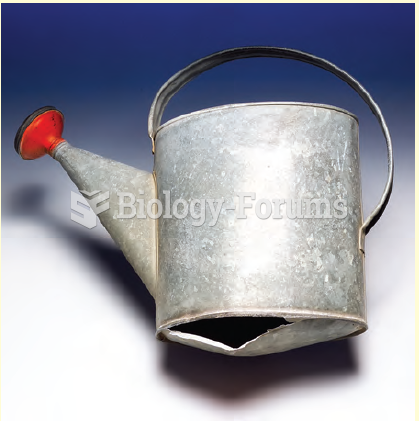|
|
|
More than nineteen million Americans carry the factor V gene that causes blood clots, pulmonary embolism, and heart disease.
After 5 years of being diagnosed with rheumatoid arthritis, one every three patients will no longer be able to work.
This year, an estimated 1.4 million Americans will have a new or recurrent heart attack.
More than 150,000 Americans killed by cardiovascular disease are younger than the age of 65 years.
IgA antibodies protect body surfaces exposed to outside foreign substances. IgG antibodies are found in all body fluids. IgM antibodies are the first type of antibody made in response to an infection. IgE antibody levels are often high in people with allergies. IgD antibodies are found in tissues lining the abdomen and chest.







